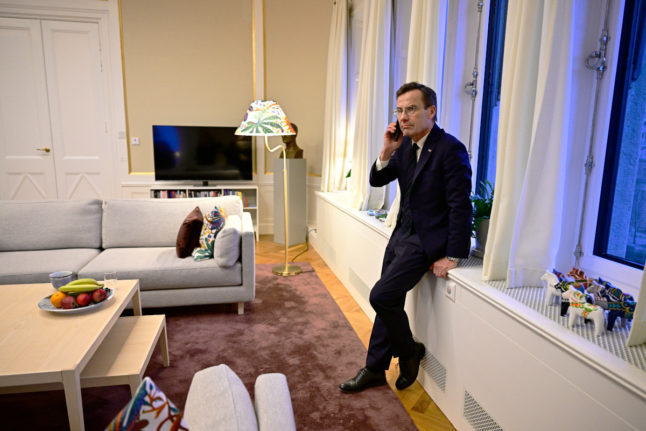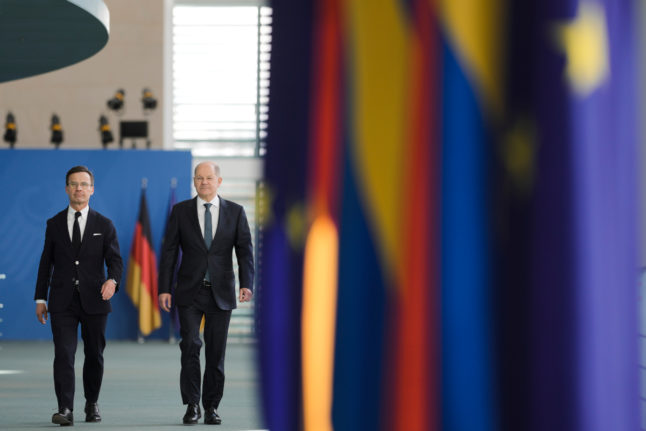“It’s not on the cards at all for the moment,” Prime Minister Ulf Kristersson told Swedish public broadcaster SVT, using the Swedish phrase det är inte aktuellt, the day after his country cleared the final obstacle to joining the transatlantic military alliance.
He was reacting to comments by French President Emmanuel Macron, who said on Monday that Western leaders should not rule out sending ground troops to help Ukraine defeat Russia’s invading forces.
“For the moment, we’re busy sending advanced (military) equipment to Ukraine,” Kristersson said.
Stockholm announced on February 20th it would give Ukraine defence aid worth 7.1 billion kronor ($682 million), including artillery shells, air defence, boats, mines, torpedoes, and training for Ukrainian soldiers.
Kyiv says it is critically short of weaponry to defend itself against Russia’s invasion, now in its third year.
READ ALSO:
Kristersson said there was currently “no demand” from the Ukrainians for Western ground troops.
He said that individual Nato members had different attitudes to engaging in international affairs “and the French tradition isn’t the same as the Swedish one”.
Sweden contributes to international peacekeeping forces but has not engaged in combat since a war with Norway more than two centuries ago.
Russia’s invasion of Ukraine on February 24th, 2022, prompted Sweden and neighbouring Finland to apply to join Nato, ending their longstanding stance of non-alignment.
On Monday, Sweden cleared its final obstacle to becoming Nato’s 32nd member after the parliament in Hungary ratified Stockholm’s bid to join – the last remaining Alliance country to do so.



 Please whitelist us to continue reading.
Please whitelist us to continue reading.
Member comments